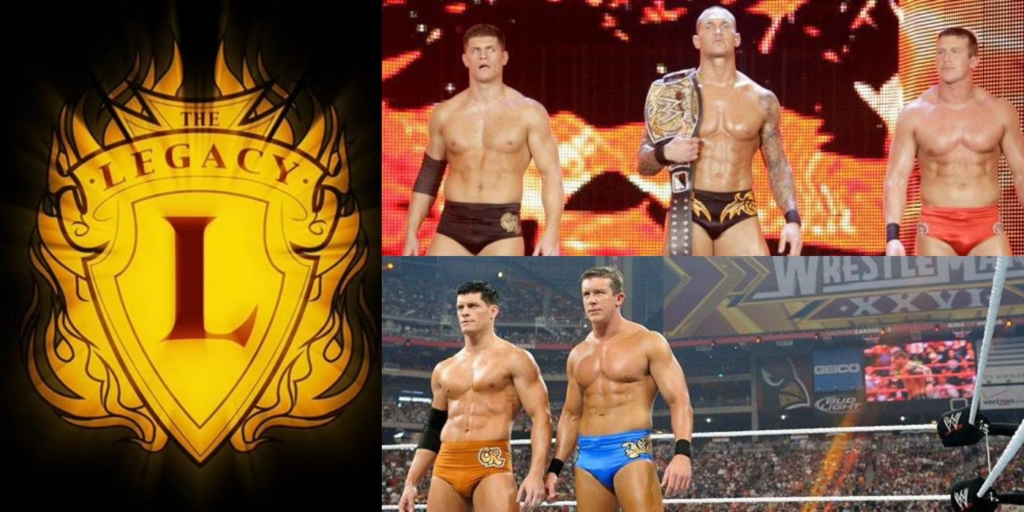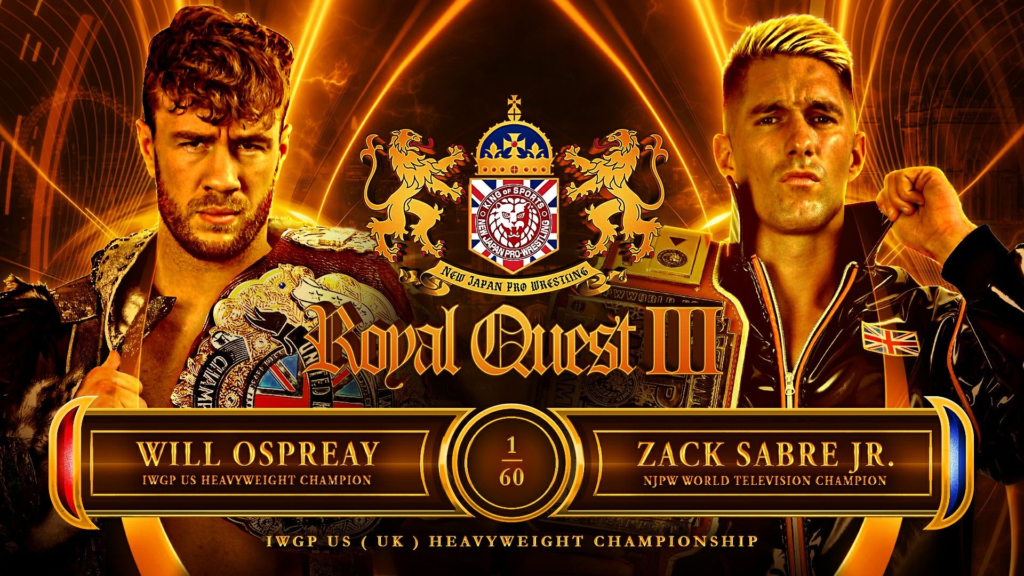
It’s Still Real to Us, Damn: The World of Professional Wrestling in WWE, AEW, and NJPW
Professional wrestling has long captivated audiences with its unique blend of athleticism, storytelling, and spectacle. Despite the often scripted nature of its matches, fans across the globe invest deeply in the drama and excitement of wrestling, famously summed up in the viral phrase, “It’s still real to us, damn it!” This blog explores the enduring appeal of professional wrestling, focusing on three of the industry’s giants: WWE, AEW, and NJPW. We’ll delve into their histories, key differences, and the cultural impact each has had on the world of sports entertainment.

The Legacy of WWE
A Brief History
World Wrestling Entertainment (WWE), originally known as the World Wide Wrestling Federation (WWWF), was founded in 1963 by Vincent J. McMahon. Over the decades, WWE has grown into the most recognizable name in professional wrestling, largely thanks to the vision of Vince McMahon Jr., who took over the company in the early 1980s.
- The Golden Era: During the 1980s, WWE (then WWF) experienced a boom in popularity, driven by larger-than-life characters like Hulk Hogan, “Macho Man” Randy Savage, and Andre the Giant. Events like WrestleMania became cultural phenomena, drawing massive crowds and mainstream media attention.
- The Attitude Era: In the late 1990s, WWE entered the “Attitude Era,” marked by edgier content, more complex storylines, and the rise of superstars like Stone Cold Steve Austin, The Rock, and D-Generation X. This era saw WWE dominating the Monday Night Wars against WCW, culminating in WWE purchasing its rival in 2001.
- Modern Era: Today, WWE remains a global powerhouse with a diverse roster of talent, including iconic figures such as John Cena, Brock Lesnar, and Roman Reigns. WWE’s weekly shows, Raw and SmackDown, continue to draw millions of viewers, while its streaming service, WWE Network, offers an extensive library of wrestling content.
The WWE Experience
WWE’s success can be attributed to its ability to blend athleticism with compelling storytelling. Each wrestler, or “superstar,” is given a distinct character and narrative arc, often involving rivalries, alliances, and dramatic twists that keep fans engaged.
- WrestleMania: WWE’s flagship event, WrestleMania, is often referred to as the “Super Bowl of professional wrestling.” Held annually, it features the culmination of the year’s biggest storylines and is renowned for its spectacular matches and celebrity appearances.
- Diverse Roster: WWE prides itself on having a diverse roster that includes wrestlers from various backgrounds and countries. This diversity adds depth to the storylines and helps WWE appeal to a global audience.
- Women’s Revolution: In recent years, WWE has made significant strides in promoting women’s wrestling, with female superstars headlining major events and earning equal recognition. The Women’s Revolution has been a crucial part of WWE’s modern era, highlighting the company’s commitment to inclusivity.
Cultural Impact
WWE’s influence extends beyond the wrestling ring. Its superstars have crossed over into mainstream entertainment, appearing in movies, TV shows, and other media. Additionally, WWE has been instrumental in shaping public perceptions of professional wrestling, presenting it as a legitimate form of sports entertainment rather than a sideshow attraction.

The Rise of AEW
Origins and Growth
All Elite Wrestling (AEW) is a relatively new entrant in the professional wrestling scene, having been founded in 2019 by Tony Khan, along with wrestlers Cody Rhodes, The Young Bucks (Matt and Nick Jackson), and Kenny Omega. Despite its short history, AEW has quickly established itself as a major competitor to WWE.
- Founding Vision: AEW was created with the goal of providing an alternative to WWE’s style of wrestling, emphasizing athleticism, creative freedom, and fan engagement. The company has positioned itself as a more inclusive and innovative platform for wrestlers and fans alike.
- Flagship Show: AEW’s weekly show, Dynamite, airs on TNT and has garnered a strong following. The company has also introduced additional programming, such as AEW Dark and AEW Rampage, to showcase its expanding roster.
- Talent Acquisition: AEW has attracted a mix of established stars and emerging talent, including Chris Jericho, Jon Moxley (formerly Dean Ambrose in WWE), and CM Punk. The company’s willingness to collaborate with other wrestling promotions has also helped it stand out in the industry.
The AEW Difference
AEW’s approach to professional wrestling sets it apart from its competitors in several key ways:
- Creative Freedom: AEW wrestlers are often given more creative control over their characters and storylines, allowing for more organic and innovative storytelling. This has led to some memorable moments and matches that feel less scripted and more authentic.
- Fan Engagement: AEW places a strong emphasis on fan interaction, regularly engaging with fans on social media and incorporating their feedback into the product. This has helped build a loyal and passionate fanbase.
- Collaborations: AEW has been open to working with other wrestling promotions, such as Impact Wrestling, NJPW, and AAA. These collaborations have led to exciting cross-promotional matches and have helped AEW cultivate a sense of community within the wrestling world.
Cultural Impact
AEW’s rapid rise has had a significant impact on the professional wrestling landscape. It has reinvigorated the industry by providing healthy competition for WWE and has created new opportunities for wrestlers and fans. AEW’s success has also demonstrated that there is a strong demand for alternative wrestling content, encouraging other promotions to innovate and improve.

NJPW: Tradition Meets Innovation
A Storied History
New Japan Pro-Wrestling (NJPW) is one of the oldest and most respected wrestling promotions in the world. Founded in 1972 by Antonio Inoki, NJPW has been a cornerstone of Japanese professional wrestling and has influenced the global wrestling scene.
- Strong Style: NJPW is known for its “strong style” of wrestling, which emphasizes hard-hitting, realistic moves and intense physicality. This style has been a defining feature of NJPW and has earned it a reputation for producing some of the most technically proficient and exciting matches in the world.
- Key Events: NJPW’s annual events, such as Wrestle Kingdom (held every January 4th at the Tokyo Dome) and the G1 Climax tournament, are major highlights of the wrestling calendar. These events showcase the best of NJPW’s talent and often feature some of the most anticipated matches of the year.
- Global Reach: While NJPW primarily operates in Japan, it has expanded its reach internationally through partnerships with other promotions and its streaming service, NJPW World. This global presence has helped NJPW attract fans from around the world and grow its influence in the wrestling industry.
NJPW’s Unique Appeal
NJPW’s blend of tradition and innovation has helped it maintain its status as a premier wrestling promotion:
- Respect for Tradition: NJPW honors the traditions of Japanese wrestling, with a strong emphasis on respect, discipline, and in-ring excellence. This respect for tradition is reflected in the presentation of its events, the conduct of its wrestlers, and the reverence for its history.
- Innovative Storytelling: Despite its traditional roots, NJPW is not afraid to innovate. The promotion has embraced long-term storytelling, with intricate plots that unfold over months or even years. This approach allows for deeper character development and more emotionally resonant matches.
- Talent Development: NJPW has a strong track record of developing top-tier talent. Many of the world’s most famous wrestlers, including names like Shinsuke Nakamura, AJ Styles, and Kenny Omega, honed their skills in NJPW before achieving global stardom.
Cultural Impact
NJPW’s influence extends far beyond Japan. Its emphasis on strong style wrestling and long-term storytelling has inspired wrestlers and promotions worldwide. NJPW’s commitment to in-ring excellence and its ability to adapt and innovate have ensured its continued relevance in the ever-evolving world of professional wrestling.
The Fans: Keeping the Dream Alive
Professional wrestling’s enduring appeal is driven by its passionate fanbase. Despite knowing that the outcomes are predetermined, fans invest deeply in the characters, storylines, and matches. This emotional investment is a testament to the power of professional wrestling as a form of entertainment.
The Emotional Connection
Wrestling fans often form deep emotional connections with their favorite wrestlers and storylines. These connections are forged through the highs and lows of the characters’ journeys, the dramatic twists and turns of the storylines, and the visceral excitement of the matches. For many fans, wrestling is more than just entertainment; it’s a source of inspiration, joy, and community.
Fan Communities
The wrestling community is vibrant and diverse, encompassing fans from all walks of life. Online forums, social media groups, and fan conventions provide platforms for fans to connect, share their passion, and discuss their favorite moments. These communities foster a sense of belonging and camaraderie, strengthening the bond between fans and the wrestling world.
The Power of Nostalgia
Nostalgia plays a significant role in professional wrestling’s appeal. Many fans grew up watching wrestling and have fond memories of their favorite wrestlers and moments. This nostalgia keeps fans engaged and loyal, as they continue to follow the sport and introduce it to new generations.
The Future of Professional Wrestling
As professional wrestling continues to evolve, WWE, AEW, and NJPW will undoubtedly remain key players in the industry. Each promotion brings its own unique strengths and perspectives, contributing to the rich tapestry of professional wrestling.
WWE: Adapting
and Innovating
WWE’s ability to adapt and innovate will be crucial to its continued success. The company has already embraced digital platforms and social media to reach new audiences and engage with fans. Going forward, WWE will need to continue evolving its product to stay relevant and appealing in an ever-changing entertainment landscape.
AEW: Expanding Horizons
AEW’s rise has demonstrated that there is a strong demand for alternative wrestling content. As AEW continues to grow, it will likely expand its reach and explore new opportunities for innovation. The company’s willingness to collaborate with other promotions and listen to fan feedback will be key to its future success.
NJPW: Preserving Tradition and Embracing Change
NJPW’s commitment to preserving tradition while embracing change will ensure its continued relevance in the wrestling world. The promotion’s focus on in-ring excellence and long-term storytelling will continue to attract fans and inspire wrestlers. NJPW’s global expansion efforts will also play a crucial role in its future growth.
Conclusion
Professional wrestling remains a beloved and enduring form of entertainment, captivating audiences with its unique blend of athleticism, storytelling, and spectacle. WWE, AEW, and NJPW each bring their own distinct flavors to the wrestling world, contributing to its rich and diverse landscape.
Despite the scripted nature of wrestling, the emotional connections fans form with the characters and storylines are genuine and profound. This deep investment is a testament to the power of professional wrestling as a form of entertainment that transcends the boundaries of sport and theater.
As the industry continues to evolve, the passion and dedication of the fans will ensure that professional wrestling remains “real” to all who love it. Whether it’s through the larger-than-life spectacles of WWE, the innovative approach of AEW, or the tradition-rich excellence of NJPW, professional wrestling will continue to captivate and inspire audiences around the world for generations to come.
0 Comments